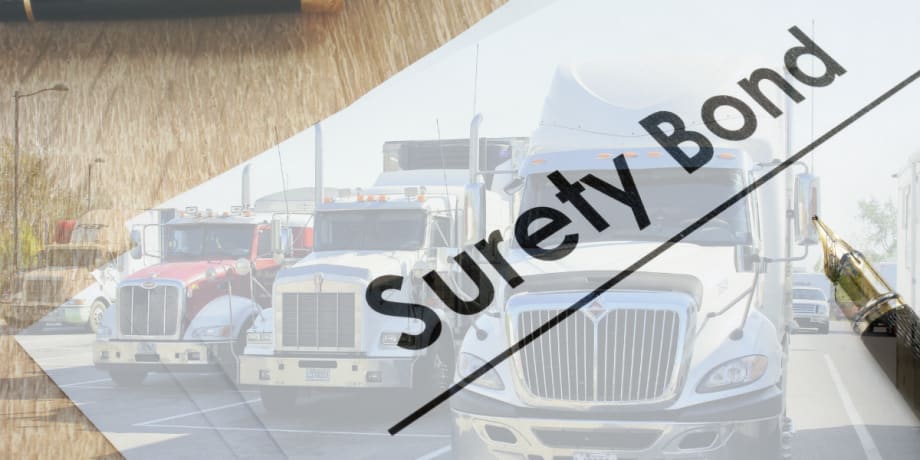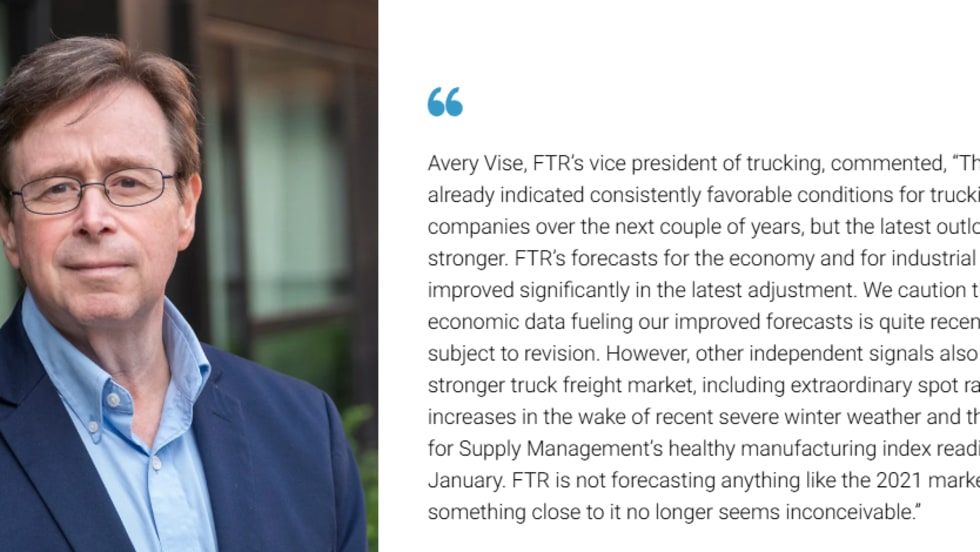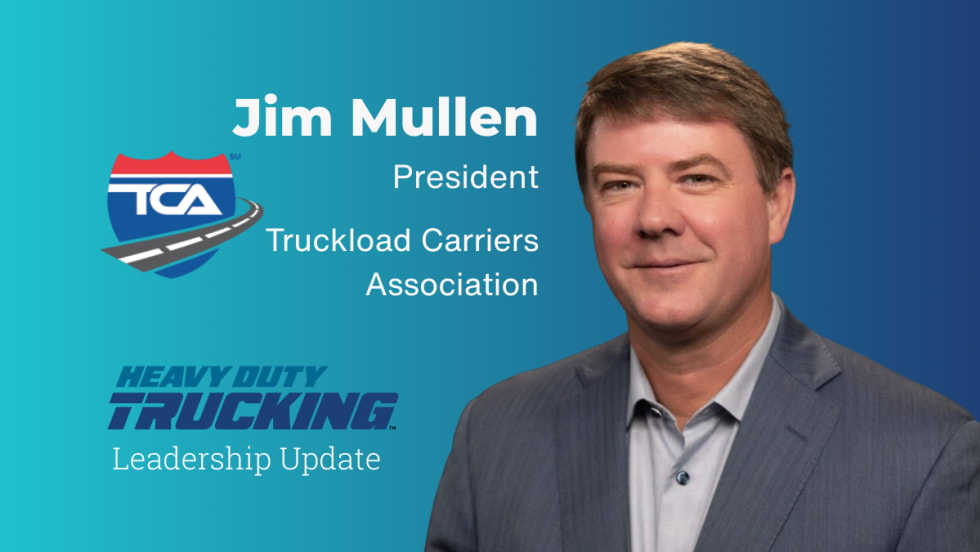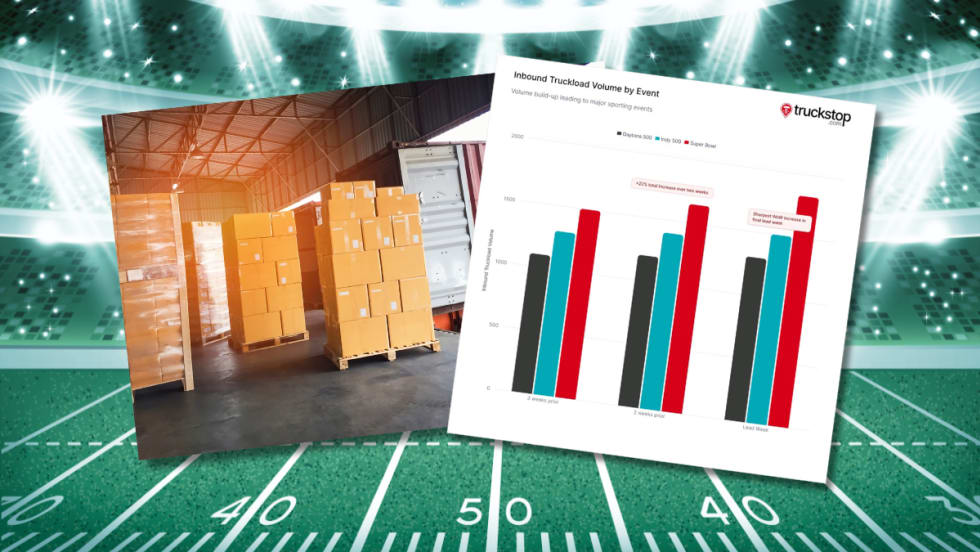Whether you’re a motor carrier that works with brokers or you’re thinking of spinning off your own freight brokerage business from your fleet operations, you need to know about surety bonds, also called broker bonds.
There are many risks involved with moving large amounts of freight over long distances. Surety bonds are used to mitigate these risks — and they are required for brokers to legally operate.
Freight brokers are responsible for negotiating important details of the freight with carriers. They represent the shippers in these negotiations, and they try to get the best deal on the delivery time and rates. Accessorial duties may include documentation of pickup and delivery times, freight tracking and more. The freight broker earns a commission on successful transactions.
Surety bonds guarantee the transaction by requiring financial responsibility from the freight broker. In essence, the freight broker is a third-party operator who manages the logistics necessary to coordinate the activities of the shippers and carriers.
The surety bond functions as a contract to protect both the carrier and the shipper. Claims can be made against this bond in the case of any breach of Federal Motor Carrier Safety Administration rules.
5 Facts About Freight Surety Bonds
The cost of the bond premium is a function of the total amount of the bond. The higher the total amount the bond covers, the higher the premium.
Freight broker bonds are required by the FMCSA. Failure to secure this freight surety bond could mean the loss of the broker’s license to operate. This provides reassurance that the freight broker is responsible for the financial aspect of this transaction.
The credit history of the buyer can affect the premium. Since the bond premium is a percentage of the total amount of the bond, the credit score can cause this amount to change anywhere from 1% to 5%. Buyers with a low credit score can still purchase bonds, but there might be additional limitations. For example, a buyer with a low credit score might only be able to purchase a specific type of bond and at a higher interest rate.
Bond licensing and renewal dates must be met in order to operate lawfully. The exact renewal dates depend on factors such as your specific industry and the state where the business is located. Renewals can usually be submitted and processed online; early submissions will ensure that you avoid being late. Always initiate the renewal process as early as possible in order to avoid any problems that could potentially arise at the last minute.
The freight broker agency must possess a freight broker bond before FMCSA will issue a valid license to operate. This provides the necessary assurance to the principal, surety and obligee. Conducting these transactions involves all kinds of risks, and this could include anything from delivery delays to missing paperwork. Freight surety bonds hold the freight broker to the standards of their industry and ensure compliance with regulations.
Rule Changes for Surety Bonds, FMCSA
Each year, the FMCSA has the opportunity to revise older rules and procedures. This includes rules about freight surety bonds, and this can affect trucking fleets, owner-operators and other parties.Staying in tune with the FMCSA’s rulemaking is helpful when navigating any new rules concerning the surety bond. Although implementation of these changes is often harder than re-writing the rules in the surety bond. Although implementation of these changes is often harder than re-writing the rules in the first place, fleets should be ready to make the necessary adjustments.
Make sure to keep proposed changes on the radar:
The MAP-21 highway bill amended the rules for the financial responsibility of the freight forwarder and broker. These rules could be changed during the next year.
Financial insolvency could result in an instant suspension of the operating authority for the broker and freight forwarder.
Group surety bonds, assets readily available and trust funds may also be impacted.
Identification of motor carriers deemed unfit to operate might also be implemented. The current system operates under a three-tier method for rating each carrier; this could also be under review.
Employment applications are being weighed according to the paperwork burden this imposes on carriers and drivers.
Motor carriers based in Mexico might also be affected by new safety standards for these surety bonds for freight brokers.
Verification of Surety Bonds
Verifying the freight bond is another critical part of the process, because freight brokers have no responsibility to the cargo during its time in transit from one location to another. This is the period of time covered by the surety bond. Insurance carriers can verify these bonds, and anyone can go to the FMCSA website to look up the business entity within their searchable database.
Freight broker authority is difficult to obtain. It requires a great deal of paperwork to get an approval from the relevant authorities. Registration and licensing must also be done prior to opening for business, and a minimum $75,000 surety bond is required in order to obtain a license. Other tasks include obtaining universal carrier registration and operating authority. Once these hurdles are overcome, it takes time and effort to become fully established.
About the Author
Lisa Trumbiski leads a team of professionals assisting clients in the surety bond industry as the manager at Bryant Surety Bonds, a company that offers commerical freight broker surety bonds.













